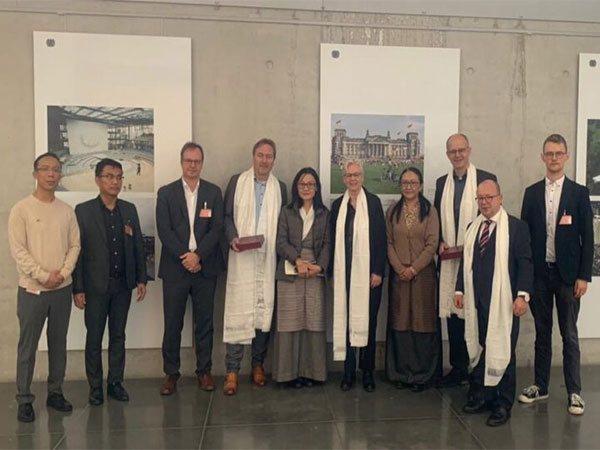Tibetan MPs Urge German Support Against China's Policies
Tibetan MPs Youdon Aukatsang and Tsering Lhamo held a briefing at Germany's parliament to highlight human rights abuses in Tibet. They called for a declaration supporting the Dalai Lama's spiritual authority and addressed issues like China's boarding schools and monastery destruction. Tibetan autonomy remains a pivotal international subject.

- Country:
- Germany
Tibetan Members of Parliament Youdon Aukatsang and Tsering Lhamo, on their final day in Berlin, conducted a crucial briefing on Tibet's current situation. The event, hosted at the German Parliament's Committee Room in Paul-Lobe-Haus, drew several distinguished German MPs, offering a vital platform to confront ongoing human rights abuses in Tibet and amplify international backing for the Tibetan cause.
The briefing featured a detailed presentation by the MPs about China's human rights violations, focusing on its alleged genocidal policies targeting Tibetan identity, culture, and religion. Concerns were voiced over the forced implementation of state-run residential boarding schools, closures of Tibetan-run educational institutions, and the destruction of monasteries labeled under development initiatives.
A poignant appeal was directed towards German parliamentarians, requesting them to issue a formal declaration endorsing the Dalai Lama's exclusive right to determine his reincarnation. This appeal gains significance ahead of his upcoming 90th birthday, with MPs asserting that such a declaration would resonate a strong message to China, advocating respect for Tibetan religious autonomy and discouraging interference in their spiritual affairs.
The Tibetan issue encompasses a broad spectrum of intertwined political, cultural, and human rights challenges linked to the region's distinct cultural, heritage, and spiritual traditions. Since Tibet's annexation by China in 1950, resulting in profound sociopolitical changes, many Tibetans, led by the Dalai Lama, have continuously sought more autonomy or independence, driven by fears of cultural dissolution and religious persecution.
China, however, staunchly claims Tibet as an integral part of its territory and defends its policies in Tibet as a push for economic growth and modernization. This view persists in sparking international discourse and activism, focusing on safeguarding Tibetan culture and human rights. Consequently, the Tibet issue remains a critical focal point in global diplomatic and human rights debates.
(With inputs from agencies.)










